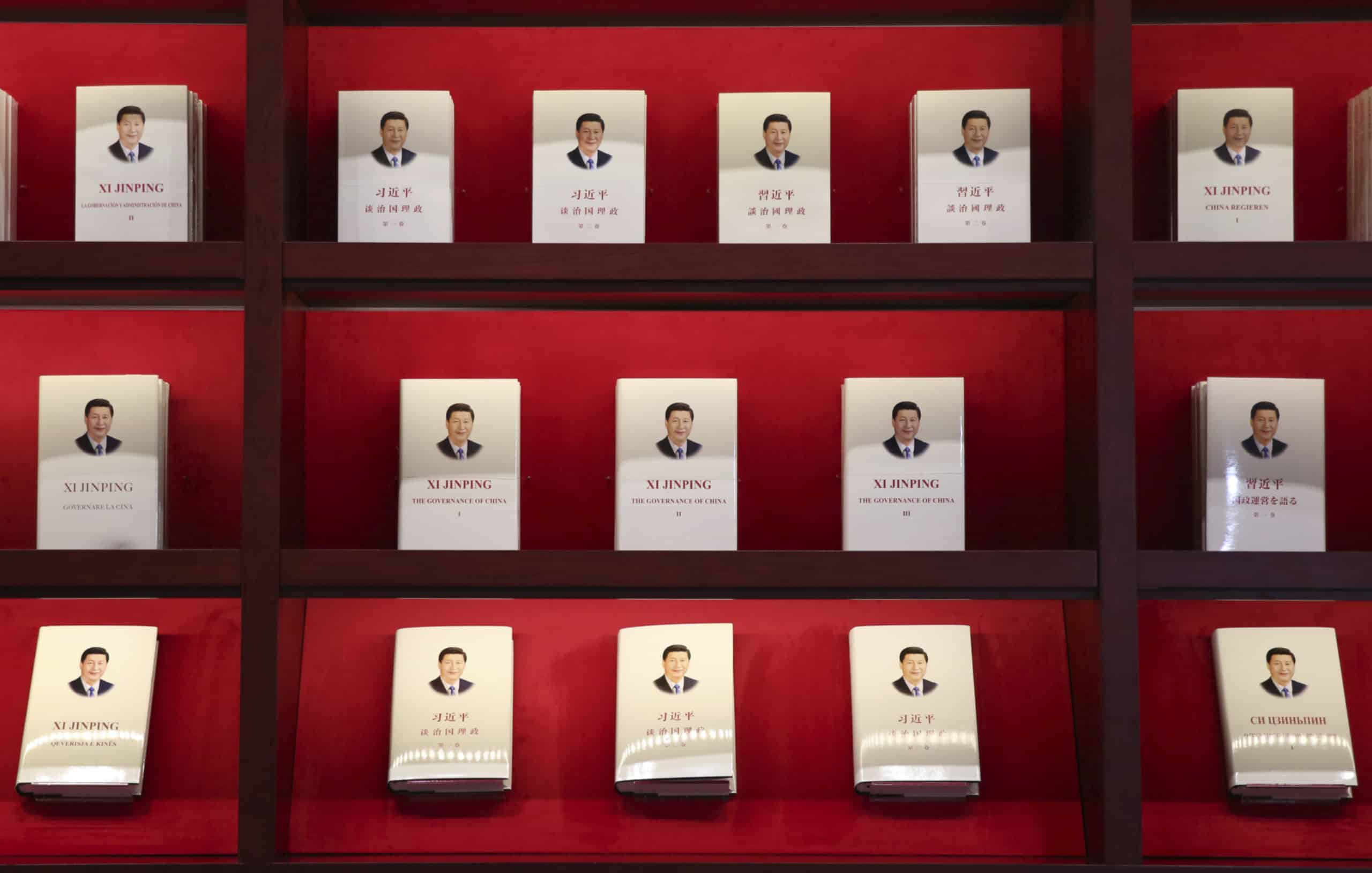
The Chinese government has given global investors a series of unpleasant surprises in recent weeks, with several unexpected announcements causing market sell-offs, primarily in tech stocks. Some have argued that investors should have been better prepared, given that the areas affected — including data privacy, online gaming and private tutoring — have long been of concern to policy makers in Beijing.
But the reality is that central government policy-making has become extremely difficult to predict, dramatically increasing the uncertainties around investing in Chinese stocks. Beijing’s recent actions have proven to be costly manifestations of what can happen when political power is highly concentrated, with the negative effect of sudden changes in policy direction compounded by zealous implementation from bureaucrats — and a phenomenon I call the “magical swords” syndrome.
During Xi Jinping’s first term as China’s leader, pundits at home and abroad generally praised his concentration of power, hoping this would allow him to overcome entrenched interests and carry out much-needed reforms. Unfortunately, what we have seen is the flip side of a centralized authority acting more quickly and unexpectedly.
When power in China was more decentralized under Xi’s predecessor, Hu Jintao, policy-making was more incremental because the interests of many bureaucracies, and even business groups, had to be taken into account. While this approach was slower, it did allow for information about policy discussions to filter through to investors, preparing them for potentially major changes in the pipeline, and giving them time to lobby against them.
The more rapid policy-making process today, born from Xi’s ability to overturn any existing consensus with the stroke of a pen, has all but done away with this filtering down of information, in turn giving investors much less of a clue about what is being considered.
After the recent crackdown on private tutoring, some investors tried to address this knowledge gap by revisiting Xi’s past speeches, where they found references to his concerns. The problem with scanning Xi’s past words as a way to predict future policy is that as his published writings and speeches multiply, they become less reliable as predictors of policy outcomes.
In the case of education technology, for example, one can find Xi in 2019 making an explicit call to “integrate education with artificial intelligence, facilitate a revolution in education based on the advantages of artificial intelligence to develop education that accompanies everyone for life.” This could well have been read at the time as an endorsement of private sector efforts to develop AI-based education technology. But if anyone had bet heavily on this quote by investing in education technology stocks, they would have faced heavy losses in recent weeks. Trying to “read Xi’s mind” with publicly available speeches will only give investors a limited handle on potential policy trends.
Trying to “read Xi’s mind” with publicly available speeches will only give investors a limited handle on potential policy trends.
The negative effects of sudden policy changes have been exacerbated by the way that officials further down the chain are zealously implementing them. This stems from Xi’s own campaign to intensify “nucleus consciousness” among party officials, which The People’s Daily defines as “consciously achieving a high level of unity in terms of thoughts, politics, and actions with the party center.”
Following the launch of this campaign in 2016, the Central Commission for Discipline Inspection — the Communist Party’s anti-corruption watchdog — began to inspect and punish provincial and central government organs that lagged behind in carrying out the Party’s latest dictates. When Xi initiates a new policy drive these days, officials tend to carry out his wishes promptly, regardless of their impact on existing stakeholders or their longer-term consequences, because they are afraid of being accused of lackluster implementation. In this way, the potential downsides of new policy drives are magnified.
The recent crackdown on after-school tutoring shows how this can play out, with footage of security personnel bursting into classrooms to arrest teachers demonstrating the campaign’s ferocity. Perhaps this zeal exceeds that desired even by Xi himself: But those below him clearly feel they must carry out any policy to the extreme, or risk being accused of not implementing his wishes to the fullest extent.
Policy unpredictability under concentrated authority is also magnified by the “magic swords” syndrome mentioned above. Following the onset of the Cultural Revolution in 1966, Communist party institutions were destroyed, and Mao Zedong ruled China almost entirely through his own personal power. His verbal or written instructions effectively became the law, or what insiders called “magic swords,” that competing interests used to protect themselves or to advance their agendas.
Towards the end of Mao’s life, one of his barely audible whispers could form the basis on which officials were purged from or promoted into the Politburo. Deng Xiaoping’s rehabilitation in 1973 and his downfall in 1976 were both triggered by a few sentences from Mao rather than any committee vote.
Of course, China today is much more institutionalized than it was in the late Mao period. However, we are again beginning to see manifestations of the “magic swords” syndrome. In late July, an official newspaper published an editorial calling online gaming “spiritual opium,” only for the editorial to be withdrawn hours later and revised to exclude those words. Both the editorial and its revision had a substantial impact on the share prices of Chinese gaming stocks. Clearly, some intense lobbying had taken place to reverse the “verdict” on gaming, perhaps even at the highest level.
The more that major policy changes are made through behind-the-scenes lobbying among a handful of politicians and technology entrepreneurs, the less ordinary or even professional investors can feel confident investing in Chinese technology companies on the basis of coherent theses. Price action will increasingly be driven by rumors, many undoubtedly false, while financial regulators’ efforts to make Chinese markets less like casinos will be frustrated.
In these circumstances, investors will need more than ‘magic swords’ to protect themselves.

Victor Shih is an associate professor of political economy at UC San Diego, and the author of Factions and Finance in China: Elite Conflict and Inflation. @vshih2



